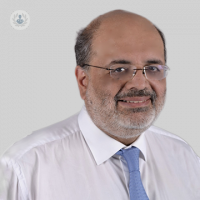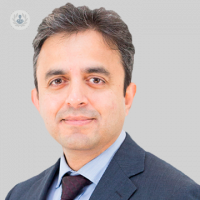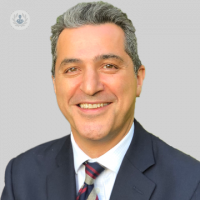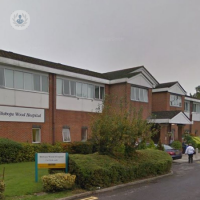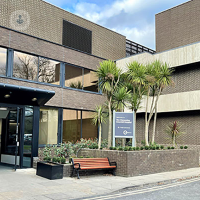What is anal fistula surgery?
An anal fistula is a tunnel or channel that develops between the skin near the anus and the bowel. This can have a number of unpleasant symptoms, and surgery, known as anal fistula surgery, is often undertaken to correct this. It is performed under general anaesthetic.
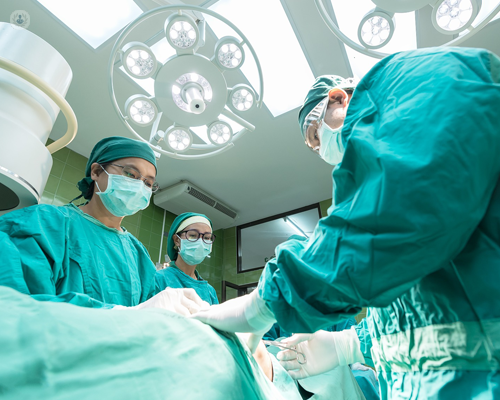
Why would you do it?
Anal fistula surgery is usually needed to treat anyone suffering from an anal fistula as they are unlikely to heal on their own. Anal fistulas are normally the result of an abscess around the anus, which when drained of the pus, leaves a small channel behind it.
Anal fistulas can be extremely unpleasant, and often cause discomfort. Surgery is nearly always required.
What does it involve?
Anal fistula surgery is carried out under general anaesthetic. There is more than one possible procedure and the most suitable will depend on individual cases.
Fistulotomy
- A fistulotomy involves cutting the fistula open and allowing it to heal as a flat scar. This is the most common form of surgery.
- This is the best choice of treatment for fistulas that don’t pass through the sphincter.
- If the anal fistula does pass through the sphincter, then there is an increased risk of incontinence with a fistulotomy and other procedures might be preferred.
Seton techniques
- A seton is a piece of surgical thread that can be inserted into the fistula to keep it open.
- This can be deployed to keep the fistula open for several weeks, allowing it time to drain and heal thus avoiding the need to make an incision.
- Although this allows the fistula to heal, it does not cure it. To cure the fistula, it may be necessary to have numerous, tighter setons inserted to gradually cut through the fistula.
Advancement flap procedure
- This involves covering the entrance of the fistula to the bowel with a flap of tissue from the rectum.
- This procedure means that the muscles around the anal sphincter do not need to be cut.
How to prepare for it
Leading up to the surgery, it might be necessary to stop taking certain medications. It is also likely that you will need to empty your colon with either a laxative or an enema before surgery. You will also need to stop eating and drinking a certain period prior to surgery. It is recommended that you have someone to drive you home after surgery.
Post-operative care
It is to be expected that there will be some bleeding and pain with your first bowel movement after surgery. It can help to make this less painful by adopting a high-fibre diet and taking stool-softeners the first few days after surgery.
Most patients will return to normal activities one to two weeks after surgery, but it will taken several weeks or a few months for the fistula to fully heal, depending on the individual case.
Here are some key post-operative care things to do after having anal fistula surgery:
- Keep active - try to walk a little each day;
- Diet - eat a high-fibre diet daily;
- Stay hydrated;
- Painkillers may be prescribed for the first couple of weeks;
- Keep the area operated on clean - warm baths are recommended.
Anal fistula surgery
Mr Sebastian Smolarek - Colorectal surgery
Created on: 11-13-2012
Updated on: 07-10-2023
Edited by: Karolyn Judge
What is anal fistula surgery?
An anal fistula is a tunnel or channel that develops between the skin near the anus and the bowel. This can have a number of unpleasant symptoms, and surgery, known as anal fistula surgery, is often undertaken to correct this. It is performed under general anaesthetic.

Why would you do it?
Anal fistula surgery is usually needed to treat anyone suffering from an anal fistula as they are unlikely to heal on their own. Anal fistulas are normally the result of an abscess around the anus, which when drained of the pus, leaves a small channel behind it.
Anal fistulas can be extremely unpleasant, and often cause discomfort. Surgery is nearly always required.
What does it involve?
Anal fistula surgery is carried out under general anaesthetic. There is more than one possible procedure and the most suitable will depend on individual cases.
Fistulotomy
- A fistulotomy involves cutting the fistula open and allowing it to heal as a flat scar. This is the most common form of surgery.
- This is the best choice of treatment for fistulas that don’t pass through the sphincter.
- If the anal fistula does pass through the sphincter, then there is an increased risk of incontinence with a fistulotomy and other procedures might be preferred.
Seton techniques
- A seton is a piece of surgical thread that can be inserted into the fistula to keep it open.
- This can be deployed to keep the fistula open for several weeks, allowing it time to drain and heal thus avoiding the need to make an incision.
- Although this allows the fistula to heal, it does not cure it. To cure the fistula, it may be necessary to have numerous, tighter setons inserted to gradually cut through the fistula.
Advancement flap procedure
- This involves covering the entrance of the fistula to the bowel with a flap of tissue from the rectum.
- This procedure means that the muscles around the anal sphincter do not need to be cut.
How to prepare for it
Leading up to the surgery, it might be necessary to stop taking certain medications. It is also likely that you will need to empty your colon with either a laxative or an enema before surgery. You will also need to stop eating and drinking a certain period prior to surgery. It is recommended that you have someone to drive you home after surgery.
Post-operative care
It is to be expected that there will be some bleeding and pain with your first bowel movement after surgery. It can help to make this less painful by adopting a high-fibre diet and taking stool-softeners the first few days after surgery.
Most patients will return to normal activities one to two weeks after surgery, but it will taken several weeks or a few months for the fistula to fully heal, depending on the individual case.
Here are some key post-operative care things to do after having anal fistula surgery:
- Keep active - try to walk a little each day;
- Diet - eat a high-fibre diet daily;
- Stay hydrated;
- Painkillers may be prescribed for the first couple of weeks;
- Keep the area operated on clean - warm baths are recommended.
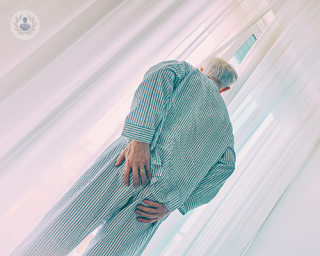

What is a fistula?
By Professor Richard Cohen
2024-11-20
You can develop fistulas in different parts of the body, but they will often form from an abscess that has not healed properly. Professor Richard Cohen is an experienced colorectal surgeon with particular expertise in treating fistulas, and here he provides a quick summary about them. See more
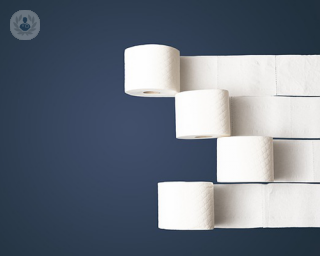

Anal fistula: Symptoms, diagnosis and treatment
By Mr Anwar Ahmad
2024-11-19
Highly esteemed consultant laparoscopic, colorectal and general surgeon Mr Anwar Ahmad imparts expert advice on anal fistulas in this informative article, including symptoms, diagnosis and treatment. See more


Anal fistula treatment options: Ask an expert
By Mr Charles Evans
2024-11-19
Unpleasant discharge and pain caused by an anal fistula can cause a lot of discomfort for patients and surgical treatment will likely be necessary. In this informative article, highly respected consultant colorectal surgeon Mr Charles Evans offers insight and reassurance for patients on the surgical procedures used to treat anal fistulas. He also details how definitive colorectal diagnoses are determined. See more


A guide to anal fistulas
By Mr Tushar Agarwal
2024-11-18
Anal fistulas are painful tunnels running from within the anal passage to an opening on the skin outside. In his latest article, consultant colorectal surgeon Mr Tushar Agarwal shares his expert insight into the condition. See more
Experts in Anal fistula surgery
-
Miss Sarah Mills
Colorectal surgeryExpert in:
- Anal fistula surgery
- Piles (haemorrhoids)
- Inflammatory bowel disease (IBD)
- Endoscopy
- Colorectal cancer
- Bowel cancer
-
Mr Savvas Papagrigoriadis
Colorectal surgeryExpert in:
- Diverticular disease
- Colorectal cancer
- Anal fistula surgery
- Pelvic floor reconstructive surgery
- Rectal surgery
- Endoscopy
-
Mr Atif Alvi
SurgeryExpert in:
- Colorectal cancer surgery
- Inflammatory bowel disease (IBD)
- Endoscopy
- Anal fistula surgery
- Hernia
- Gallstones
-
Mr Shashank Gurjar
Colorectal surgeryExpert in:
- Colorectal cancer
- Inflammatory bowel disease (IBD)
- Diverticular disease
- Haemorrhoid surgery
- Anal fistula surgery
- Laparoscopic hernia surgery
-
Mr Amir Darakhshan
Colorectal surgeryExpert in:
- Anal fistula surgery
- Blood in stool (rectal bleeding)
- Colonoscopy
- Haemorrhoid surgery
- Hernia
- Inflammatory bowel disease (IBD)
- See all

Bishops Wood Hospital - part of Circle Health Group
Bishops Wood Hospital - part of Circle Health Group
Mount Vernon Hospital, Rickmansworth Rd, Northwood HA6 2JW
No existe teléfono en el centro.
By using the telephone number provided by TOP DOCTORS, you automatically agree to let us use your phone number for statistical and commercial purposes. For further information, read our Privacy Policy
Top Doctors

Cleveland Clinic London Colorectal Unit
Cleveland Clinic London Colorectal Unit
33 Grosvenor Place
No existe teléfono en el centro.
By using the telephone number provided by TOP DOCTORS, you automatically agree to let us use your phone number for statistical and commercial purposes. For further information, read our Privacy Policy
Top Doctors

The Clementine Churchill Hospital - part of Circle Health Group
The Clementine Churchill Hospital - part of Circle Health Group
Sudbury Hill, Harrow HA1 3RX
No existe teléfono en el centro.
By using the telephone number provided by TOP DOCTORS, you automatically agree to let us use your phone number for statistical and commercial purposes. For further information, read our Privacy Policy
Top Doctors
-
Bishops Wood Hospital - part of Circle Health Group
Mount Vernon Hospital, Rickmansworth Rd, Northwood HA6 2JW, West LondonExpert in:
- Vascular Surgery
- Cancer
- Cardiology
- General Surgery
- Neurological spinal surgery
- Orthopaedic surgery
-
Cleveland Clinic London Colorectal Unit
33 Grosvenor Place, Central LondonExpert in:
- Cancer
- Colorectal surgery
- Minimal access surgery (keyhole surgery)
- Robotic Surgery
- Bowel cancer screening
- Inflammatory bowel disease
-
The Clementine Churchill Hospital - part of Circle Health Group
Sudbury Hill, Harrow HA1 3RX, West LondonExpert in:
- Abdominal ultrasound
- Abdominoplasty
- Acne
- Allergies bronchopulmonary
- Allergies nose and ears
- Allergy Dermatitis
- See all
- Most viewed diseases, medical tests, and treatments
- Undescended testicle (Cryptorchidism)
- Weight loss injections
- Nipple discharge
- Abdominal pain
- Endovenous laser treatment (EVLA)
- Minimal access surgery (keyhole surgery)
- Head and neck cancer
- Neck lump
- Bariatric surgery
- Acellular dermal matrix (ADM)


